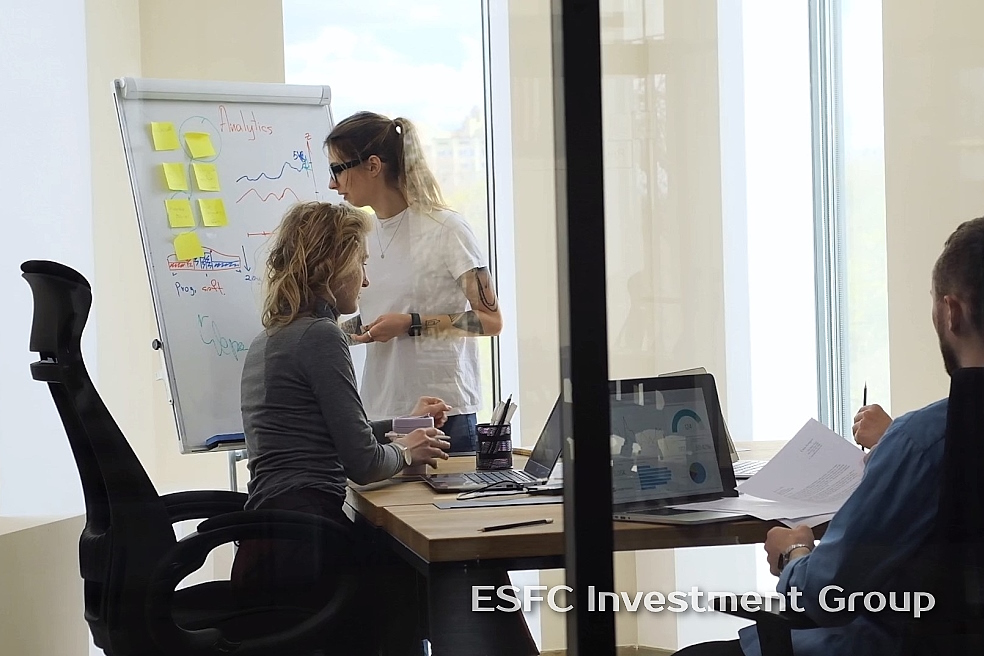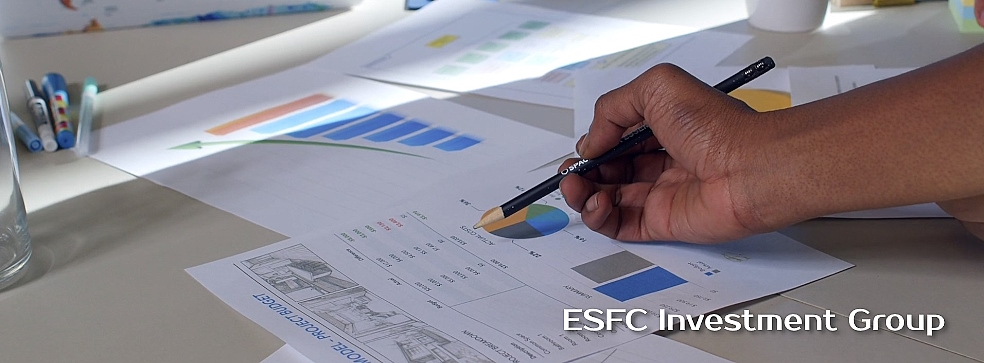After receiving the necessary documents (application form and project presentation), our team will try to review your request as soon as possible, and leading experts will offer the best options for project funding.
The project proponent plays a central role in the investment process, serving as the driving force behind project conceptualization, development, and execution.
Initiators of large investment projects find look for financial options, oversee the planning and execution of the project, ensuring it stays on track, within budget, and meets its milestones. An experienced, competent and motivated project proponent wields a profound influence on the outcome of an investment project, leaving a lasting mark on its success and societal impact.
Understanding the investment project proponent
According to the generally accepted definition, a project proponent is an individual, organization, or entity that initiates and oversees an investment project.They are responsible for bringing the project from concept to fruition, providing the necessary leadership, resources, and strategic direction.
Challenges faced by project proponents include the following:
• Financial challenges: Securing adequate funding is often a significant hurdle, and project proponents must navigate financial markets and investor expectations.
• Regulatory and compliance issues: Dealing with legal and regulatory requirements can be complex and time-consuming, requiring a deep understanding of applicable laws.
• Stakeholder management: Balancing the interests and expectations of various stakeholders, including investors, communities, and government bodies, can be challenging.
• Project execution risks: Managing the day-to-day operations of a project and ensuring it adheres to the planned timeline and budget can be fraught with uncertainties.
Obviously, the professionalism and experience of a project initiator are critical because they enable sound project assessment, risk management, and credibility with stakeholders.
Competent advisors and consulting teams can also provide expertise, efficiency, and industry-specific insights, ensuring effective decision-making and problem-solving. This combination enhances the project's likelihood of commercial success and secures investor trust.
Project proponents come from various backgrounds and can include:
• Entrepreneurs and business owners: Entrepreneurs often serve as project proponents for new business ventures or expansion projects. They take the lead in conceptualizing, planning, and executing investment projects to achieve business objectives.
• Government agencies: In the public sector, government agencies and bodies can act as project proponents for infrastructure development, public service initiatives, and community projects. They initiate and oversee projects that benefit society at large.
• Private investors and investment firms: High-net-worth individuals, angel investors, venture capitalists, and private equity firms can serve as project proponents for investment opportunities in various sectors, including technology, real estate, and startups.
• Non-profit organizations: NGOs promote projects aimed at addressing environmental or social issues. They often initiate and manage projects to fulfill their primary missions.
The term "project proponent" is a relatively modern term used mainly in the context of project management and investment.
While it may not have a long historical lineage, its significance have evolved in response to changing business and project management practices.
The concept of a project proponent gained prominence in the field of project management during the 1960s and 1970s. This era saw the development of project management methodologies and frameworks, including the Critical Path Method (CPM) and the Program Evaluation and Review Technique (PERT). These methodologies emphasized the need for clear project leadership and accountability, often referred to as the project proponent.
Over time, the term also became associated with investment projects, where individuals or organizations championed and oversaw the financial aspects of a project. This integration occurred as large-scale investment projects became increasingly complex and required dedicated leadership to secure funding, manage risks, and ensure successful execution.
Investment project conceptualization
The project proponent is usually responsible for conceiving and articulating the investment project's vision, goals, and objectives.They identify opportunities and gaps in the market or society that the project can address. Investment project conceptualization and the activities of the project proponent are closely intertwined, as the initiator is responsible for ensuring its success.
What should the project proponent do step by step during the conceptualization stage:
1. Identifying the opportunity
Project proponents often identify the business opportunity. They recognize a need or opportunity in the market or within the organization and propose particular project as a potential solution. For example, a real estate developer identifies a growing demand for affordable housing in particular urban area and recognizes the opportunity to invest in a construction project.2. Defining project objectives and scope
Investment project proponents take the lead in clearly defining the project's objectives and scope. They articulate what the project aims to achieve and its specific goals.3. Conducting market research
Project proponents oversee the gathering of critical information through research and feasibility assessments. If we refer to the previous example, extensive market research reveals that there is indeed a high demand for affordable housing in the chosen location, with favorable population growth and economic indicators.4. Risk analysis
Project initiators are responsible for identifying and analyzing potential risks associated with the project. They must develop strategies to mitigate these risks effectively. Potential risks may include changes in regulatory requirements, construction cost overruns, and market fluctuations.5. Resource planning
Estimating and planning for the financial, human, intellectual and other resources required for the project, including financial resources, personnel, and infrastructure, falls within the purview of the investment project proponent.6. Cost-benefit analysis
Project proponents are typically responsible for conducting cost-benefit analyses to assess the economic feasibility of the project. They weigh the projected costs against anticipated benefits.7. Stakeholder engagement
Engaging with stakeholders is a critical responsibility of the project initiator. They usually identify and communicate with strategically important investors, regulatory authorities, communities, and other stakeholders to understand their expectations and address concerns.8. Project vision and strategy
The proponent is instrumental in developing a clear vision and strategy for the project.In the context of a residential construction project, the initiator's vision is to develop sustainable, energy-efficient housing that enhances the quality of life for residents while generating a reasonable return on investment. They must also ensure that the project aligns with the organization's strategic goals.

9. Legal and regulatory compliance
Ensuring compliance with legal and regulatory requirements is another key responsibility. Project proponents must navigate the legal landscape to ensure the project concept aligns with the law.10. Environmental and social impact assessment
Assessing the potential environmental and social impacts of the project and developing strategies for mitigating adverse effects is part of the project proponent's responsibility.11. Project charter and feasibility report
The initiator formalizes general project concept by creating a project charter and overseeing the compilation of the feasibility report. The feasibility report includes detailed findings from market research, risk analysis, and financial projections. These documents together provide a comprehensive understanding of the project's potential and challenges.12. Financial modeling and projections
Project proponents are usually considered responsible for creating financial models and projections to estimate the project's financial performance over time. This includes revenue forecasts, expense projections, and cash flow analysis.13. Technology and infrastructure assessment
If applicable, initiators assess the technology and infrastructure requirements for the project. This involves evaluating existing capabilities and identifying necessary upgrades or investments.14. Implementation strategy and timeline
Project proponents outline the implementation strategy and develop a timeline for project execution. They determine the sequence of activities, key milestones, and timelines for completion. In the construction business it outlines a phased implementation strategy, beginning with land acquisition, followed by construction, marketing, and tenant occupancy, with a timeline spanning 5-10 years.The role of the initiator in project financing
One of the primary roles of the project proponent is to secure the necessary funding for the project.This involves sourcing long-term capital from investors, lenders, or even government grants. The initiator is responsible for sourcing the capital required to bring a project to success.
Throughout history, notable project initiators have demonstrated remarkable fund sourcing abilities. For example, Ferdinand de Lesseps, a French diplomat and engineer, initiated the ambitious project of constructing the Panama Canal in the late 19th century. He raised substantial funds from French investors before the project was ultimately taken over by the United States.
Later, Henry Ford has funded the development of the Model T in 1908, revolutionizing the automobile industry and popularizing affordable cars.
Elon Musk, as the project initiator of SpaceX, raised significant capital to develop reusable rockets, reducing the cost of space travel. Company secured billions of dollars in funding from a combination of investments and contracts with NASA.
Project initiators can explore various sources of funding, including the following:
• Equity financing: Raising capital by selling shares or ownership stakes in the project.
• Debt financing: Borrowing funds through loans, bonds, or other debt instruments.
• Grants and subsidies: Accessing public financing or grants for specific types of projects.
• Angels and venture capital: Attracting funds from individual or institutional investors.
• Private equity firms: Partnering with private equity firms for investment.
• Crowdfunding: Utilizing online platforms to gather small amounts of funding from a large number of backers, which is currently very popular for innovative high-tech business ideas.
Securing funding is not without challenges, and the project initiator must navigate these hurdles.
Challenges may include competition for limited funds, economic downturns, regulatory obstacles, and the need to demonstrate the project's potential return on investment (ROI).
Table: Some common challenges in fund sourcing and strategies for addressing them
| Challenges | The essence of the problem | Recommended strategies |
| Competition for funding | Project proponents often compete for limited funds, especially in highly competitive industries or during economic downturns. | To address this challenge, project initiators should develop a compelling business plan and pitch that clearly articulates the project's value proposition, potential return on investment, and its unique selling points. They can also explore multiple sources of funding to diversify risk. |
| Economic uncertainty | Economic and political instability, including military conflicts, global recessions or market fluctuations, can affect the availability of funding. | Project proponents may need to adapt to economic conditions by being flexible in their funding strategies. In uncertain times, they can consider conservative financial projections and secure commitments from investors or lenders in advance. |
| Regulatory obstacles | Complex and evolving regulations can create hurdles in securing funding, particularly in highly regulated industries. | Project initiators should conduct thorough due diligence on regulatory requirements and engage legal experts early in the process to navigate regulatory challenges. They may also explore partnerships with entities that have experience in dealing with regulatory constraints. |
| Limited track record | New businesses or startups often lack a track record of success, making it challenging to gain the trust of investors or lenders. | Project proponents usually address this challenge by highlighting the experience and qualifications of their team members. Building a strong advisory board or seeking endorsements from industry experts can also bolster credibility. |
| Demonstrating reasonable ROI | Investors and lenders want assurance that their funds will yield an acceptable return on investment. | Generally, project proponents should provide comprehensive financial models, market research, and a well-structured business plan that demonstrates the project's revenue potential and expected profitability. Clear and realistic projections can instill confidence in potential funders / partners. |
| Overcoming resistance to innovative ideas | Innovative or disruptive projects can face skepticism from traditional investors or lenders. | Project initiators must effectively communicate the market need and the potential for their innovative project to disrupt existing markets or create new ones. Sharing success stories or case studies from similar innovative ventures can also help mitigate resistance. |
| Investor relations and communication | Maintaining strong relationships with investors or lenders is crucial for long-term funding. | Project proponents should maintain transparent and open communication with funders, providing regular updates on project progress and addressing concerns promptly. Building trust is key to securing ongoing support. |
| Diversifying financing sources | Relying on a single source of capital can be risky for businesses. | To mitigate this risk, initiators should diversify funding sources. This could involve combining equity investment, debt financing, grants, and even crowdfunding. Diversification spreads risk and enhances financial stability. |
| Crowdfunding campaigns | Crowdfunding campaigns, while accessible, require vary effective marketing and community engagement. | Successful crowdfunding requires compelling storytelling, an engaged online community, and strategic marketing efforts. Initiators should research and leverage successful crowdfunding tactics. |
| Building a strong network | Access to funding often depends on personal and professional contacts. | Building a strong network through industry events, professional associations, and connections with angel investors and venture capitalists can expand funding opportunities. |
Project planning and management
Project proponents always play an integral role in project planning and management by setting objectives, securing funding, engaging stakeholders, managing risks, monitoring progress, making crucial decisions, providing leadership, and adapting to challenges.Their vision and leadership drive projects to success, and famous examples, such as Bill Gates, Elon Musk, and Steve Jobs, illustrate the impact of project initiators in bringing transformative projects to life.
Below we have listed eight aspects of the influence of initiators on project management and development. Some of these aspects are closely intertwined with the conceptualization of the investment project, which we discussed in more detail above.
1. Defining project objectives
Project proponents play a critical role in clearly defining business project objectives. At one time, Bill Gates has defined the objective of the Gates Foundation to improve global health and reduce poverty, resulting in large financial commitments, including an initial $28.8 billion endowment.2. Securing long-term financing
Project initiators are responsible for sourcing funds for project execution. In the case of the One World Trade Center in New York City, the Port Authority of New York and New Jersey acted as the proponent and secured over $4 billion in funding for the construction of the famous tower.3. Stakeholder engagement
Engaging stakeholders is a key function of project proponents. As we mentioned above, Elon Musk, engaged with NASA to secure contracts for space missions and effectively collaborated with private investors, raising billions of dollars to support the SpaceX company's projects.
4. Risk analysis and management
Initiators assess and manage risks associated with the project. Steve Jobs, as the proponent of the iPhone project (launched in 2004), recognized the risk of entering a competitive smartphone market but successfully managed it through innovation, resulting in 2.32 billion iPhone sales to date.5. Monitoring progress
Initiators of large investment projects closely monitor progress to ensure alignment with objectives. Jeff Bezos, as the proponent of Amazon's Prime program, tracked the growth of subscriber base and its impact on the overall company's revenue, which reached $514 billion in 2022.6. Effective decision-making
Project proponents are responsible for key decisions regarding the development of a specific project and its impact on the core business. The decision by Reed Hastings, co-founder and CEO of Netflix, to shift the company's focus from DVD rentals to online streaming is a noteworthy example of impactful decision-making by a project proponent in the business world. In the early 2000s, Netflix primarily operated as a DVD rental-by-mail service.However, Hastings recognized the growing potential of digital streaming and decided to pivot the company's business model. His vision and leadership led company to invest heavily in digital content. This shift, although met with skepticism at the time, turned Netflix into a global streaming giant. As of 2023, platform boasted over 239 million subscribers worldwide and had transformed the way people consume entertainment.
7. Leading the team
Proponents provide leadership to the project team. Howard Schultz, as the proponent of Starbucks, led the company's expansion from a small coffee shop in Seattle to a global brand with over 30,000 locations worldwide. As a result of the team's sound management, the company demonstrated revenue of $32.9 billion last year, with a compound annual growth rate of just under 10%.8. Adaptation to challenges
Initiators must adapt to unexpected challenges. A remarkable example of a project proponent effectively adapting to challenges in the business world is the turnaround of IBM under the leadership of Lou Gerstner.When Gerstner took over as CEO in 1993, IBM was facing a severe crisis. The company had posted a nearly $8 billion loss, and its market value had plummeted. New CEO made critical decisions to revamp the company's culture, reorganize its business processes, and shift its focus from hardware to software and services. His leadership and strategic decision to adapt to the changing technology landscape and customer demands revitalized IBM.
In essence, project proponents take the lead in identifying opportunities, defining project parameters, conducting assessments, engaging stakeholders, and ensuring that the project concept aligns with the organization's goals and legal requirements.
Their vision, leadership, and ability to navigate the complexities of the conceptualization phase are crucial to the project's success and its transition into subsequent phases such as planning, execution, and monitoring.




























